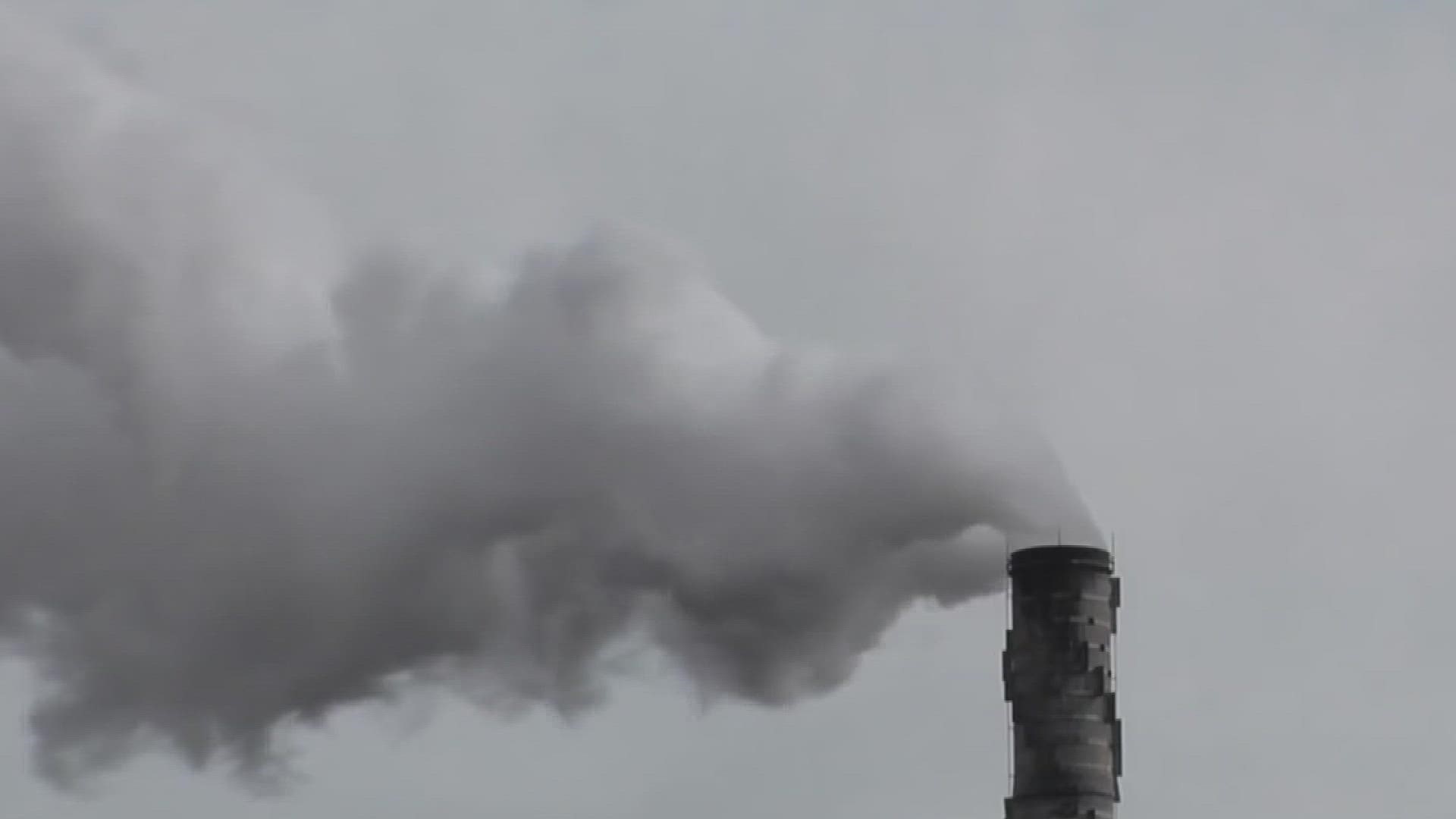Ed Wilkinson frowned as he pulled a dull brown husk from a corn stalk.
“You have no ear here, little tiny nothing, you couldn’t grow anything here, no ear here,” he said, pointing further down the stalk.
Wilkinson has been farming his entire life, including 45 years at Getty Acres, a 4,000-acre farm near Gettysburg. The farm grows corn, wheat, soybeans, and sorghum. Some is sold, and some is used to feed the farm’s 600 head of steers.
The spring was almost too wet, Wilkinson said. But the moisture dried up just as the plants needed it to grow, with almost no rain from July through September.
“It took what we thought was going to be a good year into what was not such a good year,” Wilkinson said. “What’s there is good quality, there’s just not that much there.”
The losses mean the farm may not even break even for the year’s crop. Wilkinson said he worries about how he will survive more drought years, which are already more frequent because of global climate change.
“It’s almost like riding a rolling coaster. You get a good year and you try to stock up store up and everything for a year when you don’t get it. But multiple years—you can’t handle multiple years back-to-back,” he said. “If climate changes enough where we can’t produce, then yes, I’m concerned where everybody’s going to eat.”
Wilkinson has adapted with methods like no-till farming, which retains more water in the soil. He said he wants to see investments in new agriculture technology. He’s wary about switching to electric vehicles but open to building up more green energy infrastructure if it’s feasible.
“I’m hoping that with them breeding traits and stuff into the crops, in the corn and soybeans, drought-tolerant corn, we can get over those dry spells and still have a crop for the cattle,” he said.
Climate change and energy policy are two sides of an issue central to the upcoming elections in Pennsylvania.
Here are what state- and federal-level candidates are saying they will do to curb rising energy costs and reduce carbon emissions:
On the state level, Pennsylvania is the third-largest net supplier of energy in the country, partly thanks to the Marcellus Shale, a massive natural gas field that covers two-thirds of the state.
Republican gubernatorial candidate Doug Mastriano is a vocal proponent of fracking to harvest that natural gas.
“It’s time that we unleash the potential of energy in Pennsylvania. That would benefit every single person in the state,” Mastriano said in a campaign ad. “So it’s time to roll back regulations and open up land and develop these resources without being infringed upon with so much over-taxation and fees from Harrisburg. As governor, I will endeavor to make us number one energy producer in the nation and number two, to do that, we’ll roll back regulations.”
Mastriano has called global warming “fake science” and makes no mention of climate issues on his campaign site.
In contrast, Democrat Josh Shapiro wants to increase the state’s share of renewable energy from 4 to 30 percent by 2030, and reach net-zero emissions by 2050. He says he will do that by keeping current fossil fuel jobs but also building green energy infrastructure, including bidding for some of the eight hydrogen hubs planned across the country.
Read more about hydrogen power here.
“I think these hydrogen hubs—and we should get two of them here in Pennsylvania—are game changers for probably the next two or three decades,” Shapiro said in an interview with FOX43’s Harri Leigh. “I think we can create thousands of green energy jobs, protect the ones we have today, and also do some really good things for our planet.”
At least at first, the hydrogen power would be produced using natural gas, so it would in effect increase natural gas production.
On the federal level, the Inflation Reduction Act passed in August invests heavily in domestic energy production, especially green energy. Still, a Pew Research Center survey found 58 percent of all Americans felt that the federal government wasn’t doing enough to combat climate change.
Democrat John Fetterman has praised the Inflation Reduction Act, while Republican Mehmet Oz said he would not have voted for it.
Both Senate candidates have taken shifting positions on fracking. Fetterman said in a 2018 interview that he didn’t support fracking “at all.” He reversed that stance during the Senate debate on Oct. 25.
“I absolutely support fracking,” Fetterman said. “I believe that we need independence with energy, and I believe I’ve walked that line my entire career.”
Republican Mehmet Oz, meanwhile, wrote a column in 2014 calling for no fracking pending more research. He, too, denied his prior stance at the Senate debate.
“I’ve been very consistent,” Oz said. “Fracking has been demonstrated—it’s a very old technology—to be safe. It is a lifeline for this Commonwealth to be able to build wealth, similar to what they’ve been able to achieve in other states. For that reason I strongly support fracking, drilling, the piping of that natural gas. In fact, I’d build a facility of that in Philadelphia so we can export it.”

